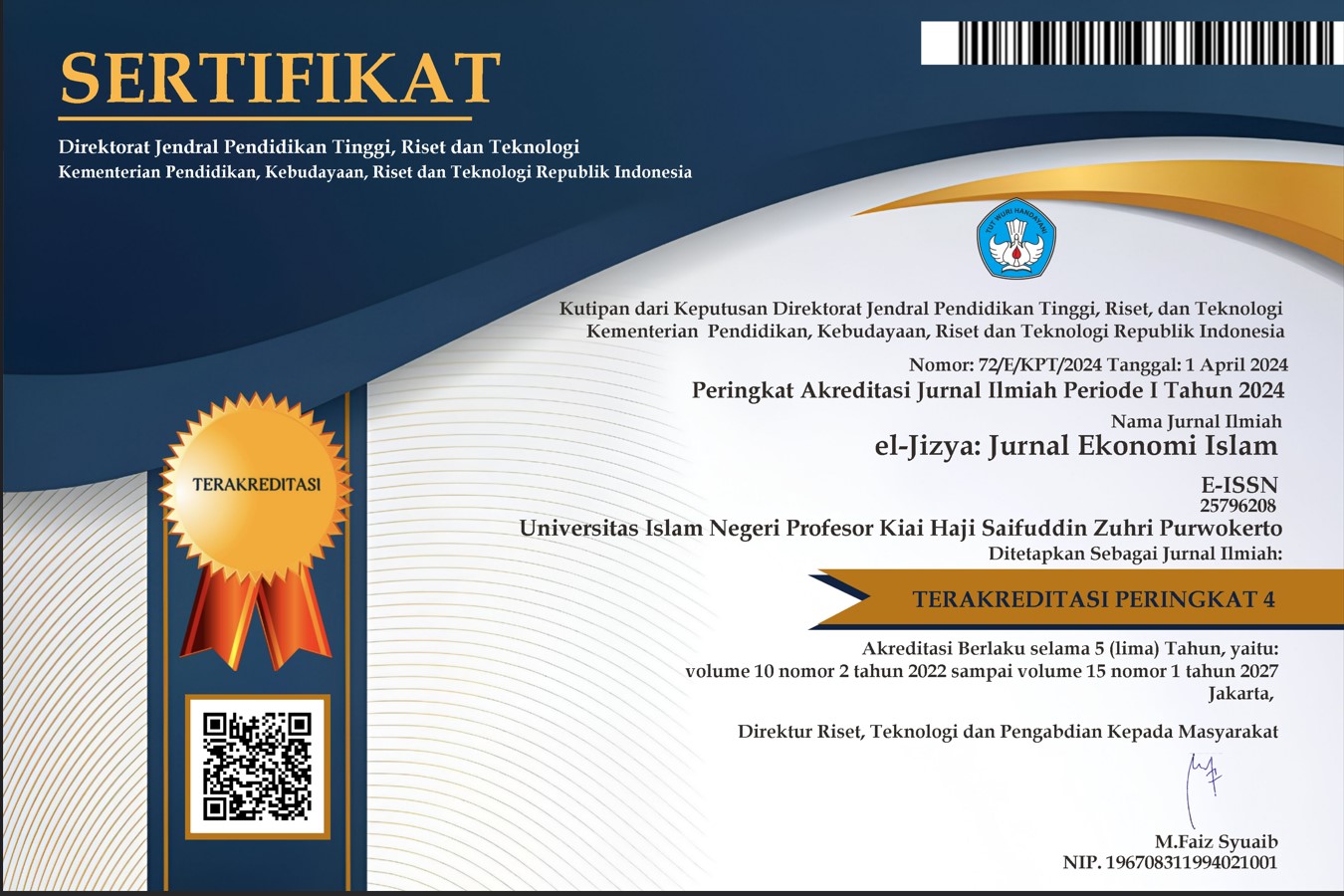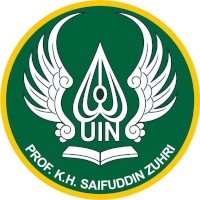Pengembangan Desain Laboratorium Zakat dan Wakaf pada Jurusan Manajemen Zakat dan Wakaf (Studi Kasus Laboratorium POZAWA / Pondok Zakat dan Wakaf Jurusan Manajemen Zakat dan Wakaf FEBI UIN Prof. K.H. Saifuddin Zuhri Purwokerto
DOI:
https://doi.org/10.24090/ej.v10i2.7029Keywords:
Development Design, Laboratory, Zakat and Waqf ManagementAbstract
The laboratory is a means and a place to support learning activities related to measurement, testing, developing understanding and skills, as well as innovation in accordance with the disciplines and fields of work that exist in universities. Laboratory of Pondok Zakat and Waqf (Lab. POZAWA) FEBI UIN Prof. K.H. Saifuddin Zuhri Purwokerto plays an important role in strengthening student competencies. So it needs to be developed so that it becomes a quality laboratory with high competitiveness and becomes a reference laboratory in the development of Zakat and Waqf Management at the national level. The method used in this research is the analytical-descriptive method, to describe a factual and actual phenomenon, event or event as it was at the time the research was conducted. The results of this study conveyed that the development of the Pondok Zakat and Waqf Laboratory Design (POZAWA Laboratory) was carried out through 6 (six) efforts, including: 1). Procurement of laboratory equipment for complete facilities in the laboratory room, 2). Procurement of laboratory assistants and technicians, 3). Foster Village Development, 4). Development of extension studios (PODCAST or radio) as information channels, 5). Improving the quantity and quality of laboratory services, 6). Creating a laboratory web site. Apart from that, efforts were also made to map fields of cultivation or business and to make strategic alternative decisionsReferences
Anis Wuryanti. (2020). ANALISIS EFEKTIVITAS METODE FUNDRAISING BADAN AMIL ZAKAT NASIONAL KABUPATEN PONOROGO. Orphanet Journal of Rare Diseases, 21(1), 1–9.
Astuti, H. K. (n.d.). Manajemen Pengelolaan dan Penggunaan Zakat untuk Kesejahteraan Umat.
Depdiknas. (2002). SPTK-21. Depdiknas.
Dra. Mestika Sekarwinahyu, M. P. (2007). Manajemen laboratorium. 1–15.
Emda, A. (2017). Laboratorium Sebagai Sarana Pembelajaran KIMIA dalam Meningkatkan Pengetahuan dan Ketrampilan Kerja Ilmiah. Lantanida Journal, 5(1).
Hayatuddin, A. K. (2019). Pengembangan Program Studi Manajemen Zakat dan Wakaf Fakultas Syariah IAIN Surakarta Berbasis Kebutuhan Masyarakat. ZISWAF: Jurnal Zakat Dan Wakaf, 6(2).
Indrawati. (1999). Keterampilan Proses Sains: Tinjauan Kritis dari Teori ke Praktis. Bandung: Dirjen Pendidikan Dasar dan Menengah
Jurnal Hisba, 1(11).
Lembar Negara RI. (2011). Pedoman Pengawasan Lembaga Pengelola Zakat. Journal of Chemical Information and Modeling, 02, 1–108.
Littlejohn, S. W., Foss, A., & Hamdan, Y. (2009). Teori Komunikasi. Jakarta: Salemba Humanika.
Miles, B. M., & Huberman, M. (1984). Analisis Data kualitatif. UI Press. Moloeng, L. J. (2004). Metode Penelitian Kualitatif. Remaja Rosdakarya.
Nunan, D., & Choi, J. (2010). Language and Culture: Reflective Narratives and the Emergence of Identity. London: Rutledge.
Pusat Kajian Strategis, B. (2021). Standar Laboratorium Manajemen Zakat. In Angewandte Chemie International Edition, 6(11), 951–952.
Rifai, Achmad, G. S. (2020). Manajemen Zakat, Infaq, Shadaqah dan Wakaf. Kekuatan Hukum Lembaga Jaminan Fidusia Sebagai Hak Kebendaan, 21(2), 132–133.
Downloads
Published
How to Cite
Issue
Section
License
Copyright (c) 2022 Rahmini Hadi, Slamet Akhmadi, Pramudita Hesti Pratiwi

This work is licensed under a Creative Commons Attribution-ShareAlike 4.0 International License.
Authors who publish with this journal agree to the following terms:
- Authors retain copyright and grant the journal right of first publication with the work simultaneously licensed under a Creative Commons Attribution-ShareAlike License that allows others to share the work with an acknowledgement of the work's authorship and initial publication in this journal.
- Authors are able to enter into separate, additional contractual arrangements for the non-exclusive distribution of the journal's published version of the work (e.g., post it to an institutional repository or publish it in a book), with an acknowledgement of its initial publication in this journal.
- Authors are permitted and encouraged to post their work online (e.g., in institutional repositories or on their website) prior to and during the submission process, as it can lead to productive exchanges, as well as earlier and greater citation of published work (See The Effect of Open Access).















